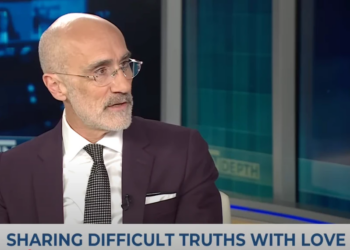Sophie Corcoran is a political commentator.
When I left the Conservative Party, it wasn’t on a whim. Like many others, I was disillusioned. The Tories had drifted too far from the values they once upheld: personal responsibility, economic discipline, and competence. Reform UK seemed to offer something better; a principled alternative rooted in common-sense conservatism. But after months of campaigning for the party, including spending my birthday canvassing in a by-election, I’ve come to a difficult conclusion: Reform UK isn’t what it appears to be from the outside.
One of my biggest concerns is the gulf between what Reform UK promises and what it actually delivers. On 24th April, its leader Nigel Farage stood at a press conference in Dover and claimed that the party’s detailed deportation policy would be released “within three to four weeks”. Just two days later, then-chairman Zia Yusuf posted online: “The full policy document and detailed plan will be published next month.” It is now June, and the policy plan is nowhere to be seen.
This isn’t an isolated case. In February, Farage claimed that Reform would initiate a private prosecution against Business Secretary Jonathan Reynolds for allegedly misrepresenting his legal credentials. Nothing has come of it. The same goes for the promised independent inquiry into grooming gangs – another pledge that has quietly disappeared. For a party that built its reputation on criticising the Conservatives for failing to deliver, Reform is rapidly falling into the same pattern: bold announcements for headlines, with little follow-through.
Then there’s the baffling pledge to scrap the two-child benefit cap, which is a policy that undermines the very principles Reform was supposed to stand for. For those unfamiliar (including the Reform leadership themselves), the cap limits additional welfare payments to families with more than two children on Universal Credit. Reform argues their move would boost the birth rate. But in reality, it only allows existing benefit claimants to access more money. It does nothing to help working families trying to get by without state support.
The numbers speak for themselves. Just 14 per cent of White British households have three or more children, compared to 41 per cent of Pakistani households, 38 per cent of Bangladeshi households, and 60 per cent of Muslim families more broadly. Scrapping the cap would disproportionately benefit particular demographics, while placing a larger burden on the very taxpayers struggling to support their own families. Reform’s leadership rightly complains about the £1 billion we spend each month on benefits for foreign nationals, but how does it make sense to push policies that would further inflate that figure? This proposal flies in the face of personal responsibility and fiscal fairness. It’s a deeply regressive move, more befitting of the Corbynite left than any serious political party.
But what troubles me most is the culture within Reform itself. From the outside, the party presents itself as bold, pro-freedom, and insurgent. The right-wing media gives it a remarkably easy ride, rarely holding its leadership to account. But from the inside, it feels paranoid, overly centralised, and hostile to dissent. There’s a top-down culture of control, where speaking up gets you punished.
When I voiced my concerns about the two-child benefit policy, I was publicly insulted by Isabel Oakeshott, partner of Deputy Leader Richard Tice. She called me a “moron” and dismissed my opinion because I’d previously been a Conservative. That’s rich, given how many Reform members, including senior leadership, have themselves been members of multiple parties. The party isn’t bound tightly by ideology or shared values, but by a need to worship the leadership and Farage as if they are God.
There is a clear pattern emerging. Rupert Lowe, a respected figure within the party, was pushed aside for daring to challenge the leadership. Local branch chairs have been removed for minor disagreements or simply for asking too many questions. Members operate in a climate of fear, not because they’ve broken rules, but because they’ve expressed the wrong opinion. There’s a performative commitment to free speech, but behind the scenes, criticism is met with hostility.
I’ve spent years at one of the most left-leaning universities in the country, debating students committed to cancel culture. But even in those spaces, I felt freer to speak my mind than I have within Reform UK. That’s a damning indictment for a party that claims to champion free expression.
What has also become painfully clear is the leadership’s contempt for its own members. There’s little trust and little consultation, with a clear disdain for grassroots. This was obvious during the Cambridgeshire and Peterborough mayoral campaign, where the party sent out letters urging Peterborough residents to vote for ‘their local Reform Cambridgeshire county council candidate’, forgetting that Peterborough is a unitary authority and didn’t even have local elections. If the leadership had taken the time to consult local members, the embarrassment could have been avoided. But they didn’t, because decisions are made at the top, with no respect for those on the ground.
I left the Conservative Party because I believed it had abandoned its principles, failed to deliver on its promises, and stopped respecting its own members. It pains me to say that Reform is guilty of all those same failings, and – in many cases – to a worse degree.
The internal culture of Reform is defined by a fear of dissent, a lack of transparency, and a leadership more interested in press than in principle. Combined with a media narrative that rarely challenges them, it’s easy to see why so many believe Reform is the answer. But I’ve seen what lies behind the curtain.
I believe in loyalty, but to principles, not personalities – and certainly not to parties that betray the ideals they claim to uphold. If we’re serious about building a better political alternative, then we have to be honest about where Reform UK is falling short. Sometimes doing the right thing means standing apart, even when it comes at a personal cost.

![Former Bravo Star Charged After Violent Assault Using a Rock-Filled Sock in Tennessee Walmart [WATCH]](https://www.right2024.com/wp-content/uploads/2025/07/Former-Bravo-Star-Charged-After-Violent-Assault-Using-a-Rock-Filled-350x250.jpg)



![Karoline Leavitt Levels CNN's Kaitlan Collins and Other Legacy Media Reporters [WATCH]](https://www.right2024.com/wp-content/uploads/2025/07/Karoline-Leavitt-Levels-CNNs-Kaitlan-Collins-and-Other-Legacy-Media-350x250.jpg)
![Man Arrested After Screaming at Senators During Big Beautiful Bill Debate [WATCH]](https://www.right2024.com/wp-content/uploads/2025/06/Man-Arrested-After-Screaming-at-Senators-During-Big-Beautiful-Bill-350x250.jpg)



![Illegal Alien Walked Free After Decapitating Woman, Abusing Corpse for Weeks [WATCH]](https://www.right2024.com/wp-content/uploads/2025/07/1753013138_Illegal-Alien-Walked-Free-After-Decapitating-Woman-Abusing-Corpse-for-350x250.jpg)





